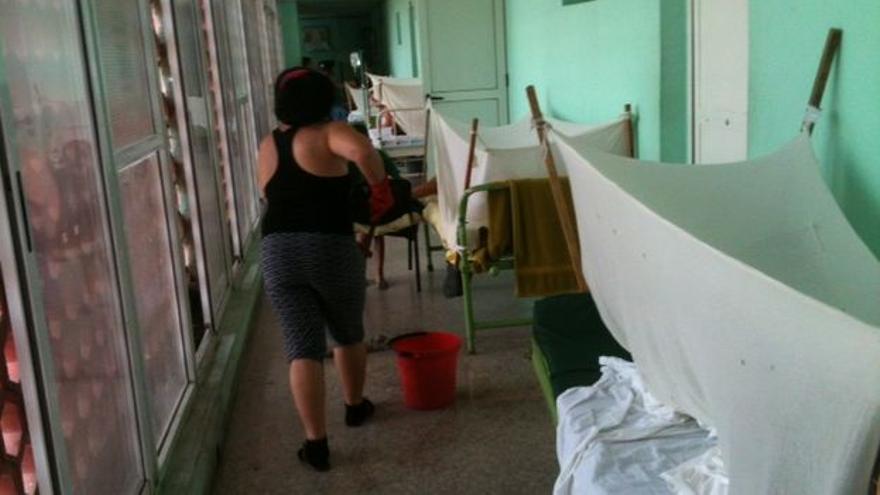
![]() 14ymedio, Havana, 4 August 2022 — In the last week, dengue fever infections in Cuba increased by 35.5% compared to the previous week, and the prediction is for the same with the advance of August, due to “vacation, rain and intense heat, which makes the situation very complex.”
14ymedio, Havana, 4 August 2022 — In the last week, dengue fever infections in Cuba increased by 35.5% compared to the previous week, and the prediction is for the same with the advance of August, due to “vacation, rain and intense heat, which makes the situation very complex.”
By the end of July, dengue had already spread to 11 Cuban provinces, according to the Ministry of Public Health. However, the most affected territories are Isla de la Juventud, Havana, Guantánamo, Camagüey and Holguín.
“There are serious problems with environmental management that today is also taxed with the multiplication of outbreaks throughout the territory,” said Health Minister José Ángel Portal Miranda, referring to the garbage in the streets, in a meeting with the President of the Republic, Miguel Díaz-Canel. His report was transmitted on State TV Noon News, on August 3, and the minister asked for work on this matter “knowing the limitations that exist.”
At the same meeting, he asked that crowds should be avoided in hospitals and that reserve centers should receive more patients with alarming symptoms of the disease caused by the Aedes Aegyptis mosquito.
Last week alone, Cuba detected more cases of the disease than in the entire first half of the year, 4,776 cases between July 17 and 23. That week, 10,590 tests were carried out, and the positivity rate was 45.1%.
Hospitals have increased space to receive more admissions due to dengue in recent weeks, such as the Mario Muñoz Monroy hospital, in Colón, Matanzas, which went from having two beds to 80 beds.
Health workers insist that the population must do everything possible to protect themselves, because there are no insecticides such as abate or diesel to fumigate every six days, as established in the protocols. These limitations, coupled with the summer heat and the long hours of blackouts, are leading to the proliferation of a disease that had remained in the background during COVID but now has regained strength.
Recently, a doctor told 14ymedio that healthcare workers are alarmed by the increase in cases of severe dengue fever because “it’s not usual. In previous epidemics, perhaps approximately 1% of cases had warning signs (those that warn you that the patient is not evolving well), but now it’s more than 30%.”
The Ministry of Public Health warned of the symptoms of the disease: abdominal pain, vomiting, irritability, drowsiness, swelling or edema and bleeding, and said that four serotypes of dengue are circulating on the island, “which means that it’s possible to get infected four times*,” says the announcement, sent through Telegram.
*Translator’s note: Infection with any serotype of dengue fever generally results in future immunity, but only to that serotype. Severe cases of the disease are most common when a person who has been infected in the past is infected again, but with a different serotype.
Translated by Regina Anavy
____________
COLLABORATE WITH OUR WORK: The 14ymedio team is committed to practicing serious journalism that reflects Cuba’s reality in all its depth. Thank you for joining us on this long journey. We invite you to continue supporting us by becoming a member of 14ymedio now. Together we can continue transforming journalism in Cuba.
